Israeli onslaught on Gaza has killed 46 journalists: Gaza Media Office
At least 46 journalists have been killed and dozens injured in the Gaza Strip since the start of Israel’s bombardment campaign against the besieged enclave last month, surpassing the number of media workers killed in any other war in the area since 1992.
In a statement on Saturday, the Government Media Office in Gaza said most of the journalists were directly targeted by Israeli occupation missiles and others were killed in the bombing of their homes.
The media office extended its deepest condolences to the families of the martyrs and their loved ones, and fellow journalists for the great loss of a group of devoted men and women who have sacrificed their lives for their country and for the sake of fulfilling their duties by standing to the last breath in defense of the truth.
Committee to Protect Journalists said that more media workers have been killed in Israel’s war on Gaza than in any other conflict in the area since it started tracking the data in 1992.
The unprecedented Israeli bombardment began when the Gaza-based Palestinian resistance movements launched Operation Al-Aqsa Storm in the occupied territories in response to the Israeli regime’s intensified crimes against Palestinians.
The death toll from Israel’s genocidal attacks on the Gaza Strip has reached at least 9,572 people. More than 26,000 individuals, mostly women, children and the elderly, have been wounded as well.
The regime has also cut off one of the most densely populated places in the world from basic supplies, like water, electricity, and fuel. Shortages of medical supplies and food have left 2.3 million Palestinians at risk of starvation.
The illegal entity has so far refused any calls for a ceasefire, defying the international community’s demands for an immediate end to the massacre of Palestinian civilians.
Fuel crisis shuts down Gaza hospitals
Also on Saturday, health officials in the besieged area announced that power generators at Kamal Adwan Hospital in northern Gaza had stopped working due to a lack of fuel.
“Generators in Kamal Adwan Hospital in northern Gaza have completely stopped operating due to the severe fuel shortage,” Ahmed Kahlut, the director of the hospital, said in a statement.
The Palestinian Health Ministry in Gaza has over the past few days appealed for fuel supply for hospitals’ generators in the war-torn Strip as a serious fuel crisis threatens the lives of hundreds of patients, including premature babies.
The Health Ministry announced last Thursday that the main power generators at the Indonesian Hospital and al-Shifa Hospital in Gaza had shut down.
Israeli warplanes also bombed the power generator and solar energy panels at al-Wafa Hospital in central Gaza City on Saturday.
WHO slams Israeli attacks on healthcare centers in Gaza
In another development on Saturday, the World Health Organization (WHO) censured Israel’s incessant shelling of the precincts of al-Shifa Hospital, al-Quds Hospital, and the Indonesian Hospital in Gaza City and the northern Gaza Strip.
“Attacks on health care, including the targeting of hospitals and restricting the delivery of essential aid such as medical supplies, fuel, and water, may amount to violations of International Humanitarian Law,” the WHO said in a statement.
The WHO reiterated its call for an immediate ceasefire, emphasizing the urgent need to protect all health workers, patients, health transport, and health facilities.
On Friday, as many as 15 people were killed and 60 others injured outside al-Shifa Hospital, the largest medical center in Gaza, when the Israeli regime targeted a convoy of ambulances carrying casualties from Gaza City to the Rafah border crossing with Egypt.
Two further Israeli aerial attacks were reported on the same day at al-Quds Hospital, resulting in at least 21 injuries. An Israeli attack was also reported near the Indonesian Hospital.
Syria’s de facto new ruler names Asaad al-Shibani as foreign minister
How 8-year-old Lebanese child Fawaz nixed Ben Gurion’s 76-year-old fallacy
VIDEO | 700,000 Cubans rally at US embassy in Havana against trade embargo
Iranian embassy staffer assassinated by terrorists in Damascus
VIDEO | Press TV's News Headlines
Scandalous detention of Iranians by US to extort information
VIDEO | Israeli forces open fire on Syrians protesting occupation
Ezzedine al Qassam: the man who inspired armed struggle against Israeli occupation


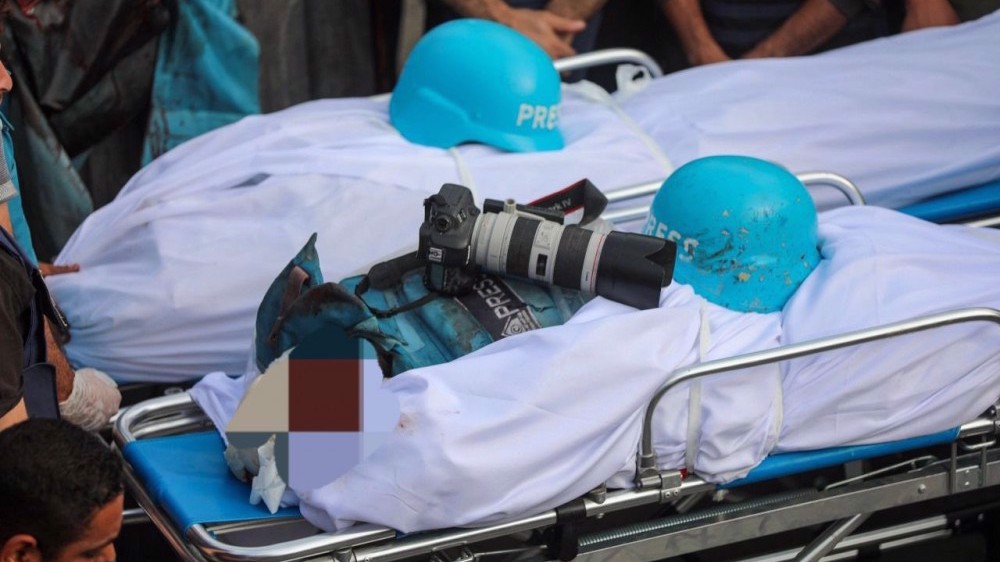
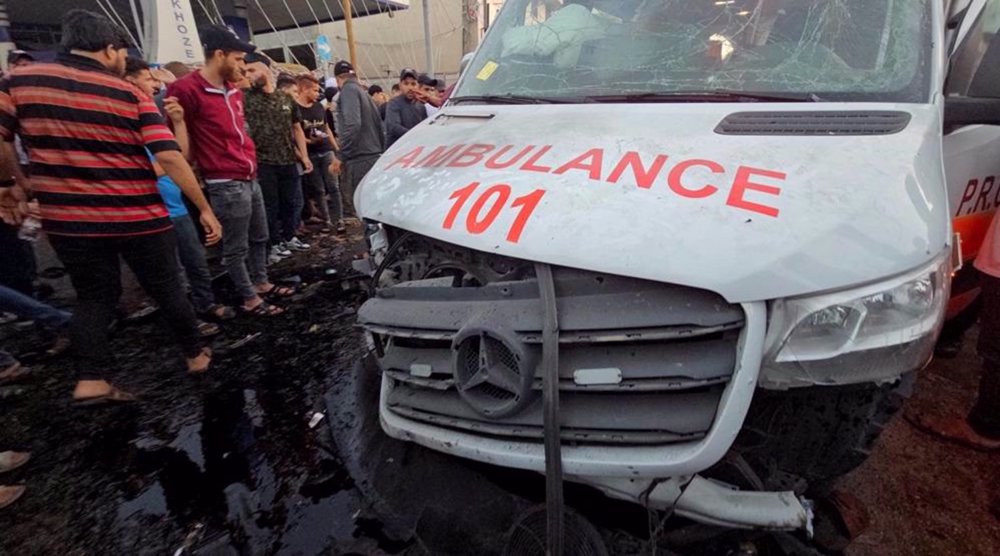
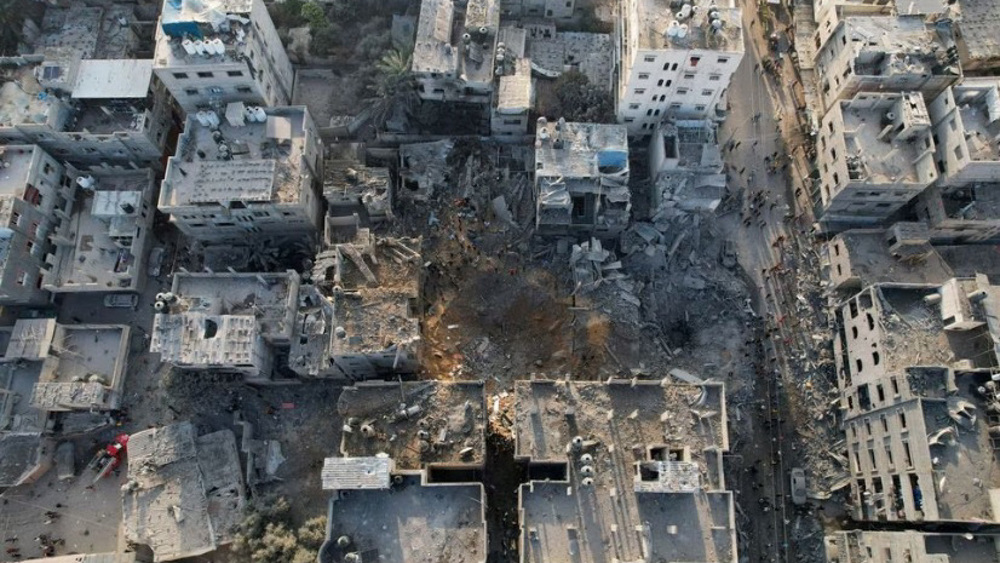
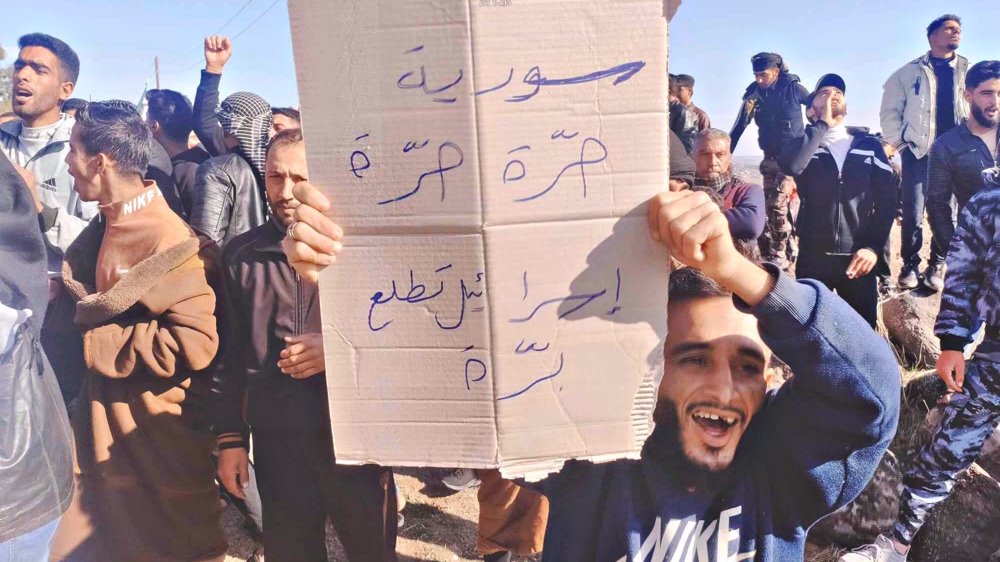
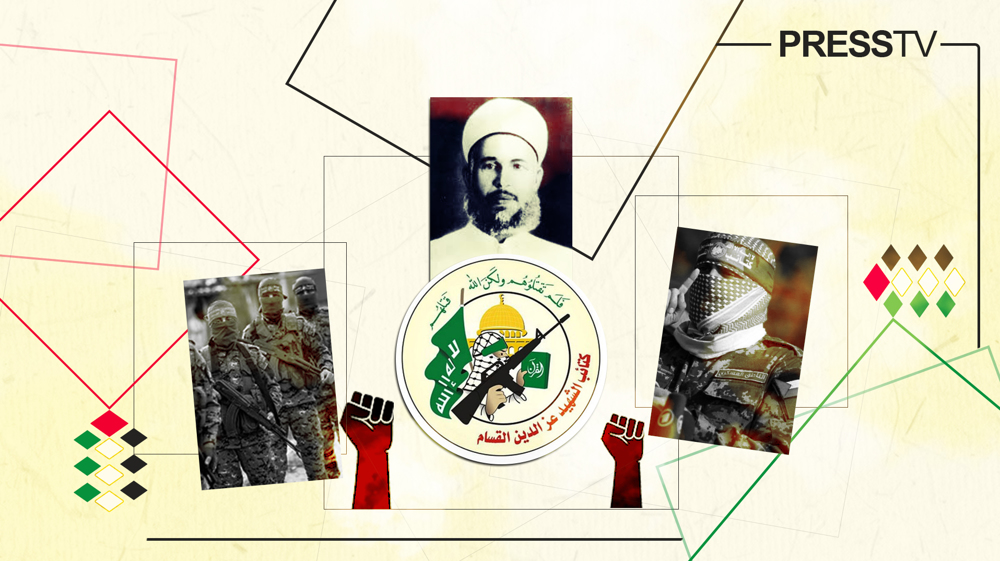
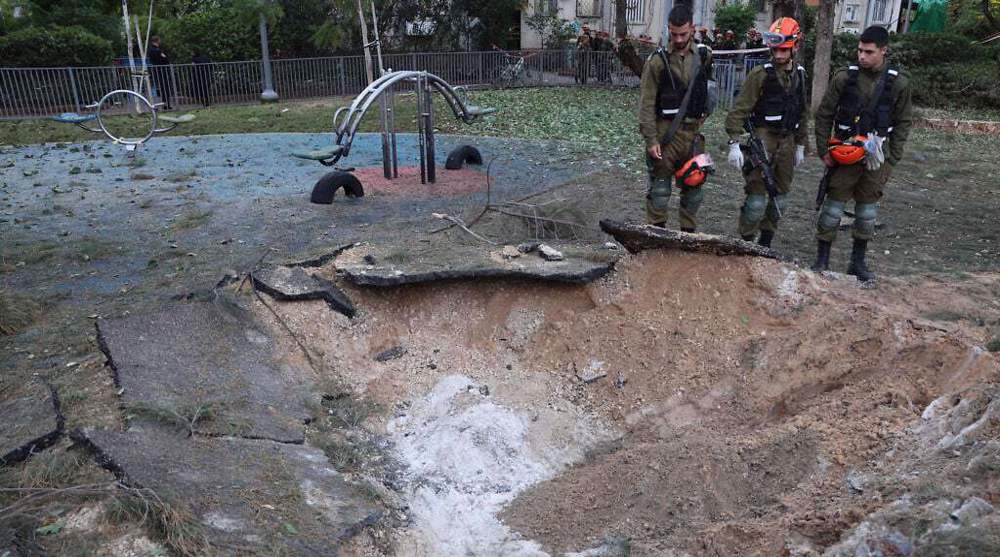




 This makes it easy to access the Press TV website
This makes it easy to access the Press TV website